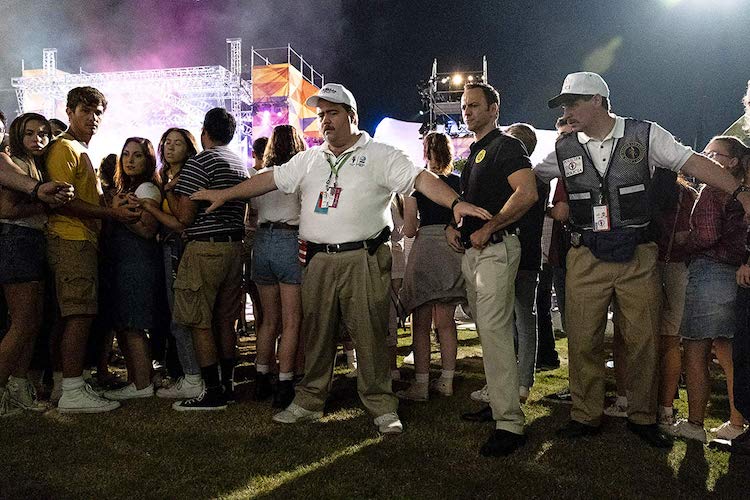
For those of us too young to remember, a security guard named Richard Jewell discovered a backpack bomb at the 1996 Atlanta Olympics. It exploded shortly after, resulting in two deaths and over one hundred injuries. But if it hadn’t been for Jewell, who also aided in clearing crowds away from the device, the casualties would have been much worse. In a classic case of “no good dead goes unpunished,” overzealous journalism turned Jewell from beloved local hero to vilified prime suspect in just a matter of days. Eventually, Jewell was exonerated, the real bomber was caught, and Jewell received numerous out-of-court libel settlements. A new movie, directed by cultural icon Clint Eastwood and eponymously entitled Richard Jewell, dramatizes Jewell’s rush-to-judgment victimization.
As compelling as Richard Jewell’s story is, it’s the breakout performance by Paul Walter Hauser as the titular character that makes the film an easy recommendation. Perhaps best known for his portrayal of the not-so-bright bodyguard who conspired to smash Nancy Kerrigan’s knee for Tonya Harding in 2017’s I, Tonya, and subsequently seen briefly in Blackkklansman and Late Night, Hauser’s portrayal is so real, so familiar, it feels we’ve known someone like him even if we haven’t. Jewell has a weight problem, lives at home with his mom, spends his spare time playing video games, and fantasizes he will one day make the leap from security guard to the Secret Service. He’s an easy target for bullying, condemnation and ridicule. Yet the film regards him as a human being, not a stereotype, and Hauser imbues him with such earnestness and hyper-vigilance, we can’t help but cheer for his vindication.
Politically, the film is densely packed with commentary and subtext, and members from both sides of the political spectrum will find much to agree with and raise eyebrows over. Jewell himself is a conservative’s dream citizen – patriotic, hard working, a member of the NRA, and he both respects and obeys authority. To put a red baseball cap on his head would be a little too on the nose, but pay close attention and you’ll spot one atop Jewell’s hat rack. Behind the desk of Jewell’s lawyer, played to sardonic perfection by Sam Rockwell, is a bumper sticker that reads, “I fear the government more than I fear terrorists.” In today’s world, that sentiment could find nods of agreement in blue states and red.
The way the FBI is portrayed will almost certainly raise red flags among liberals, the insinuation being, once the FBI sets their sights on someone, they’re unrelenting in the pursuit of their preconceived verdict. On the other hand, progressives can point to how Jewell responds to the false accusations; he’s truly innocent, so he’s patriotically inclined to fully cooperate with investigators rather than engage in obstructionism. There’s also a bit of advice that his lawyer gives him after he accepts a new position as a campus police officer: “Once you get your badge, don’t become a monster – a little power can turn a person into an asshole.” That exchange could simply be foreshadowing the type of nefarious badge-wearers Jewell soon encounters, but it could also be read as an indictment against our current head of state.
In reality, law enforcement did waste time and resources pursuing an innocent man, and the news outlets did engage in irresponsible journalism. It’s conspicuous, though, that at this particular point in history, Eastwood reached back twenty-three years in order to direct a film about a well-documented case of FBI malfeasance and fake news. Coincidence? Perhaps. Politics notwithstanding, Eastwood deserves credit for creating such a thoroughly engrossing and passionate film like Richard Jewell just shy of his 90th birthday.
For KSQD’s Film Gang, this is Paul Kanieski.












